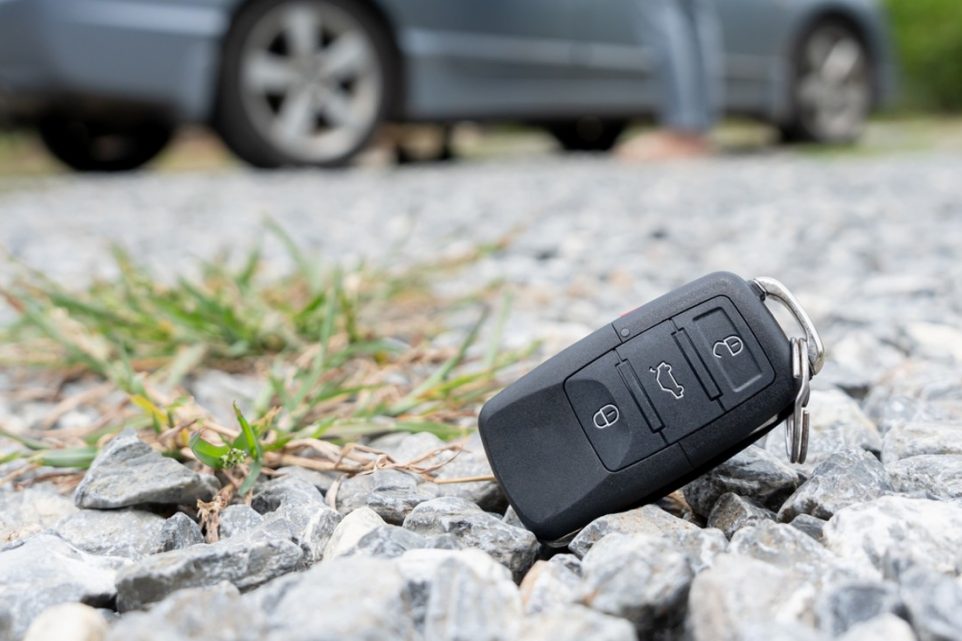How To Not Lose Your Car Keys (And What To Do If You Lose Them)

Let’s set the scene: It’s an early Monday morning, the most crucial day of your week, packed with back-to-back commitments. You’re already running a tad late, you grab your coffee, swing your bag over your shoulder, and dash out the door. Just as you’re about to lock up, your hand fishes around an empty pocket. Panic sets in. Where are your car keys?
If this sounds familiar, you’re not alone. I’ve been there more times than I care to admit. The frenzy of upturning cushions and sprinting room to room isn’t just frustrating; it can throw off your entire day. After one too many key-search expeditions, I decided enough was enough. It was time to get strategic about how I handle my keys to save my sanity and my schedule.
Find a Home for Your Keys
Establishing a designated spot for my keys was a game changer. The spot you choose doesn’t need to be fancy; it just needs to be consistent. For me, it’s a small hook by the door. This single hook has saved me countless minutes and spared me heaps of stress. Whether it’s coming home from grocery shopping or a late night out, my keys always go straight to their home on the hook. No exceptions.
Keep Your Eyes on the Prize with Bright Key Spots
Still, even the best-laid plans can falter. Keys, being the slippery little escape artists they are, can sometimes end up slipping behind a counter or under a stack of mail. To combat this, I introduced a vibrant key tray positioned prominently on a hallway console table. The tray serves as a bright visual reminder, and its openness ensures the keys don’t take a dive into the unknown.
Make Your Keys as Important as Your Wallet
Think about how seldom you lose your wallet or phone. We’re naturally more vigilant with items we deem essential. I started attaching my car keys to my purse with a carabiner clip, and that worked—because I might be callous about my keys, but I never forget where I put my purse! It’s a simple trick, but it keeps the keys tethered to something larger and harder to misplace.
Always Have a Spare Key Handy
Despite all the best systems, things can still go awry. That’s why I have a set of spare keys. These aren’t just stashed in a drawer; they’re kept with a trusted neighbor. This way, if all else fails, I’m not left stranded. It’s a simple safety net that provides peace of mind.
Wear Your Keys Like a Necklace
For those days when I’m juggling groceries, gym gear, and whatnot, a lanyard has been surprisingly effective. Slipping it around my neck or attaching it to my belt loop, the keys become one less thing to worry about. It’s a bit old school, but incredibly effective, especially on busy days.
What To Do If You Lose Your Car Keys?
But what if, despite taking all the precautions above, you still end up losing the key? Well, don’t worry too much—there are steps you can take to get back on the road. Whether it’s a traditional key, a modern fob, or a high-tech smart key, each type has its own solution.
Traditional Car Key
If your traditional car key goes missing, your best bet is to call a locksmith who can come to your location and cut a new key right there. This works for most vehicles, but if you’re driving something a bit older or more unique, a locksmith might not be able to help. In that case, you may need to purchase a new ignition lock cylinder and key directly from a car dealership or an independent repair shop.
If you just lose the fob and still have the traditional key, you’re in luck—you can continue to use your key to unlock and start your car. Replacing a fob is straightforward; they are available as aftermarket products, which means you can grab one from auto parts stores, dealerships, or even online. They’re affordable and easy to program yourself.
Switchblade or Transponder Key
For those with a switchblade key, which flips out at the press of a button and combines the key and fob into one, you might find yourself paying a bit more. An aftermarket replacement typically costs about $125. You can get these at car dealerships, where they will cut and program it for you, or you might find one online. However, keep in mind that personal programming might be necessary.
Losing a transponder key is more problematic. These keys, which have a chip in the head of the key, are necessary for your car to start. If lost, and without a spare, prepare to tow your car to the dealership. There, after you prove ownership, they will issue a new key and sync it to your car’s computer system. This can be pricey, often costing between $200 and $250, not including any towing charges.
Smart Key
Smart keys, which allow you to start your car with a push button, are the most advanced—and the most expensive to replace. If you lose your smart key and don’t have a spare, you’ll face similar steps as with a transponder key: towing the car to the dealership and waiting for a new key to be ordered and paired, which can cost upwards of $320.
General Tips for All Key Types
For all types of keys, consider getting a spare if you haven’t already. Keeping a spare in a secure but accessible place can save you a lot of time and money. Additionally, investing in electronic trackers for your keychain can be a lifesaver; devices like Tile let you find your keys using an app, reducing the panic when you can’t find them.